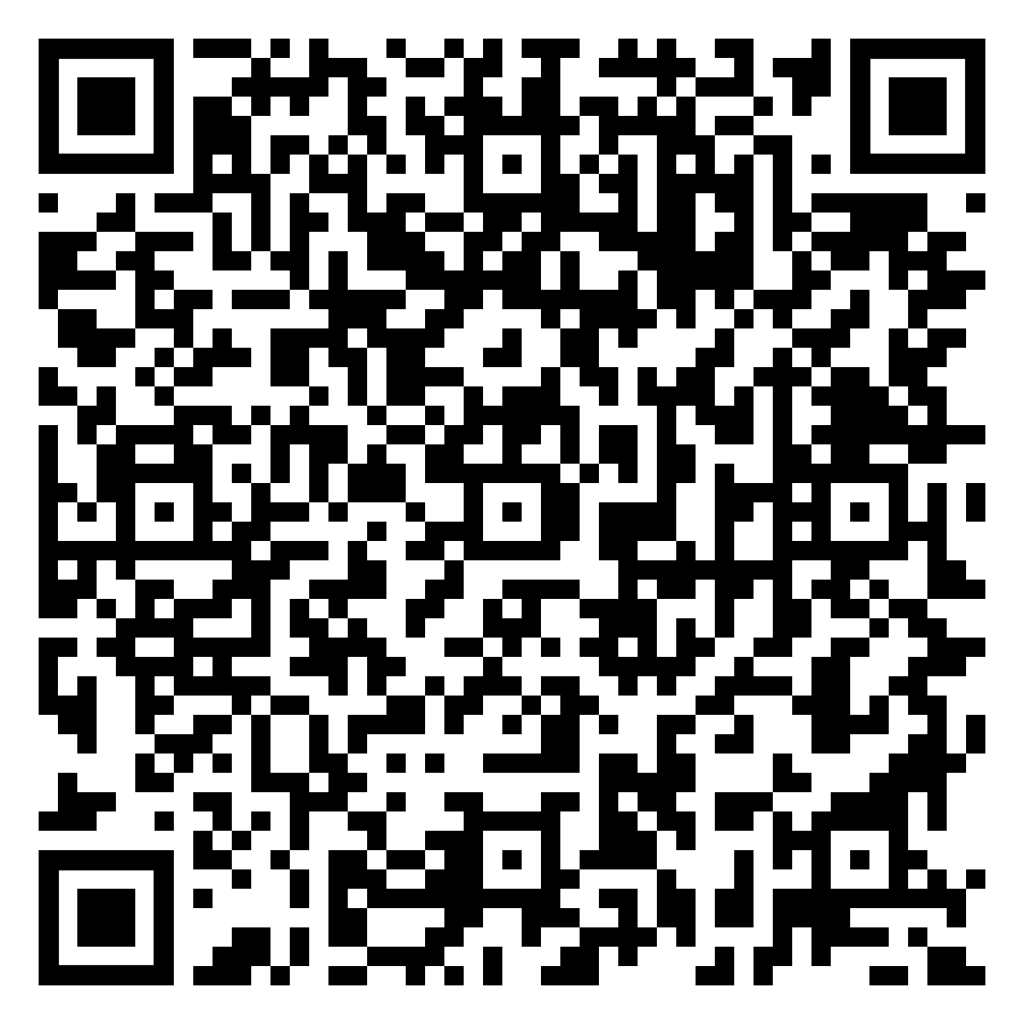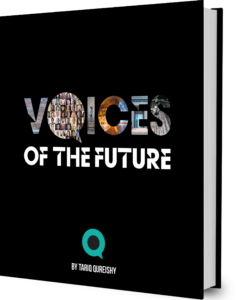Loubna Imenchal’s insights are compelling and profound. As VP of Africa, the Middle East, Turkey, and Central Asia at Logitech, her journey is one of resilience, innovation, and a relentless pursuit of dreams. It extends far beyond her corporate success; it is a narrative of ambition and determination with a voice of the future.
“I don’t believe things come easily in life; it taught me that if you want something, you must fight for it,” Loubna reflects.
This fighting spirit has deep roots in her family history. Reflecting on her early influences, Loubna shares her mother’s impactful story: “My mom got married when she was 15 years old with the love of her life and had to leave her family. She is my inspiration: when you want something, go for it because you must fight for it, and nothing comes easy. She taught me always to visualize the future – to work towards achieving that vision and dream.”
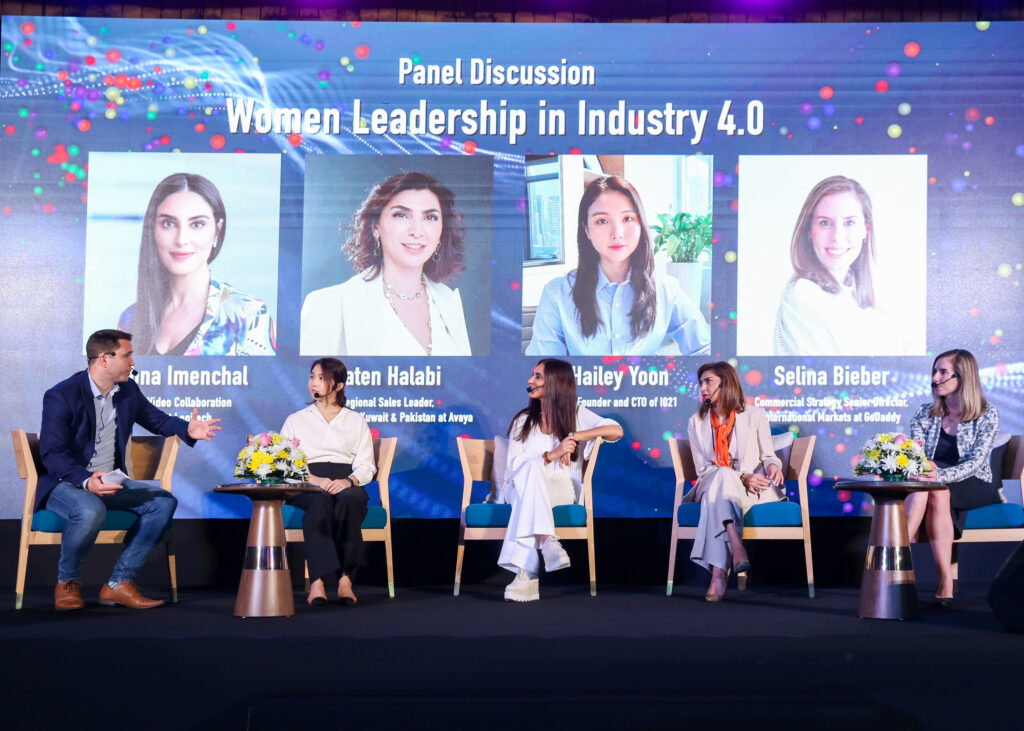
Her professional path has been groundbreaking, particularly in a tech world still primarily dominated by men. Before Logitech, she was at Honeywell. There, she initiated a cultural shift within the company. Her rise to leadership was a statement against stereotypes and a beacon for aspiring women in technology. “When I grew up, I always looked for ways to impact the next generation; at Honeywell, I managed men with more than 35 years’ experience at the company – but once they saw the success, they promoted me three times,” she reflects. “Our fight and success makes it slightly easier for the next generation of women in tech leadership. We forget how tough it was in 2007 because today it seems so much easier.”
At Logitech, Loubna reshaped workplace norms, introducing a fresh approach towards leadership and inclusivity. Loubna is a role model – but her passion stands out beyond that. She’s an ardent activist for women’s empowerment and a fierce advocate for women in tech. She strives to bring about transformations in diversity, inclusion, and equity.
While chatting off-camera before our podcast session, she shares insights on this commendable role: “I am committed to diversity, equity, inclusion – bringing people together with different backgrounds, talents, and ideas drives innovation. Diversity is good for business and good for society. My childhood and life has been all about embracing different cultures and people. Logitech partners with Girls Who Code, assisting girls with Logitech’s Master Series and helping them pursue education opportunities in STEM (Science, Technology, Engineering, and Mathematics).”
“Our fighting and success make it slightly easier for future generations of women in tech leadership. We forget how tough it was in 2007 because today it seems so much easier.”
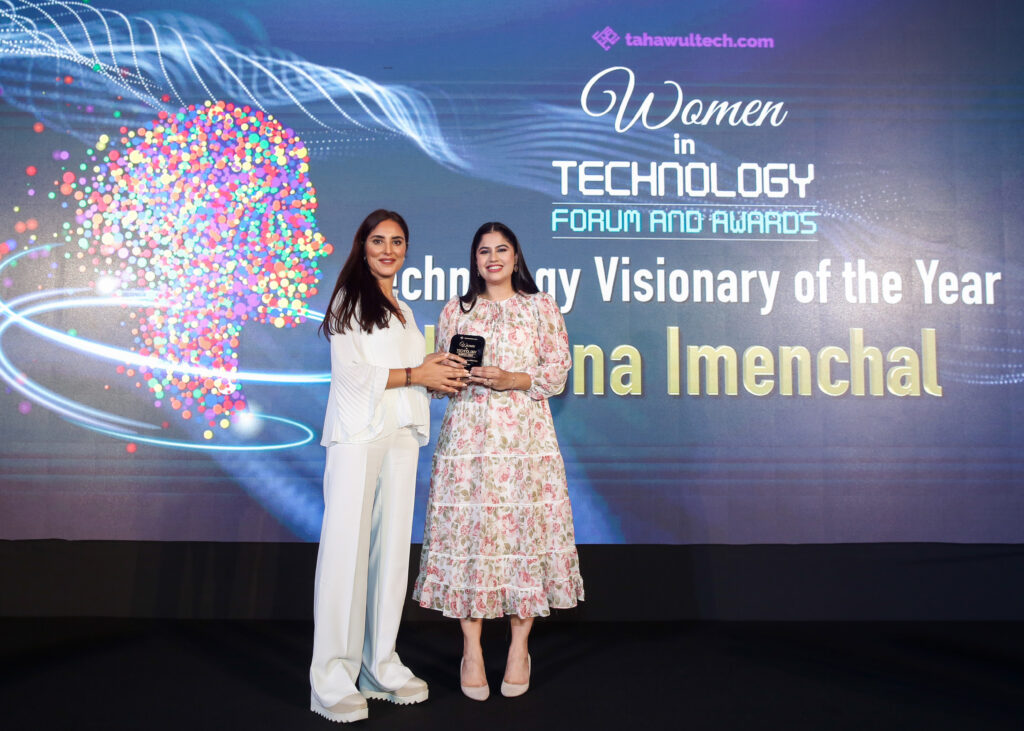
The discussion turns toward leadership and embracing diversity of thought at all levels of leadership. As a successful business person and technologist today, her approach to leadership is unconventional and inspirational. “Multicultural leadership is crucial when we talk about leading three continents and 72 countries,” she affirms, highlighting her role at Logitech. She emphasizes: “As an Arabic Moroccan woman who grew up in a culture with three religions all living together, I’ve learned never to judge, be open to other cultures, and respect their values. My key role is to ensure my team members feel their voice is heard, are respected for their actions, and encourage them to make mistakes.” This resonates deeply with me as I live by this motto: a rising tide lifts all boats. At Logitech, Loubna most definitely personifies that, too.
As the world becomes more technology-driven, I think technology is a tool to help humans do things faster and better. However, with AI, the world’s problems may become exacerbated. A call for balance is necessary: humans and AI must coexist harmoniously. Loubna’s response is refreshing – and astute: “When humans invented the wheel, everybody was scared. Then, we embraced it. Ever since its mass adoption, it has become a mandatory technology.
AI’s acceleration has been unprecedented. Emotionally, we’re not ready for it.

Organizationally, we’re not prepared for it. I posit that we must be careful in using it as a tool to improve our lives rather than let it take over. The danger of AI is that it can learn, develop, and replicate: other technologies can’t. We have one skill over AI: love. Loubna agrees: “This disconnection from technology is important to embrace the nature of humanity. AI is like medication: if you use it properly, it can solve a problem; if we use it with ill intent, it can be dangerous. Now, the challenge is keeping our value as humans without technology negatively impacting our daily lives.”
I share the same sentiment as Loubna’s vision for the future: we must build intrinsically human traits to ensure humanity’s progress. In her words: “We must change education systems and teach our children how to love, be kind, have the right values, art, and philosophy – the things a robot or AI can never do,” she says. “If we look at AI as a machine, limiting its role to what it should be – to serve humanity – then everything will be peaceful in the future.” She cautions that AI creates individuals, not groups, and we teach our children how to love and live together as humans.
On education, Loubna is forthright in her opinion: “To be better than AI, we need to focus on education, education, education.” She believes the education system needs to be restructured to teach values instead of being competitive: “When I talk to my kids, I don’t tell them to be first in class. That’s the pressure we, as Generation X, experienced. I don’t advise my kids on how to be first; I advise them on how to be happy, be kind to themselves, make mistakes and learn from them, and keep fighting for what they believe in. It’s important to teach them to be kind to themselves: there’s enough judgment from society. My son is Muslim, and my daughter is Christian; they love and respect each other, and we have peace in the family and are kind to each other. I wish that all parents around the world can teach their kids to be kind and respectful, and then the world will have peace.”
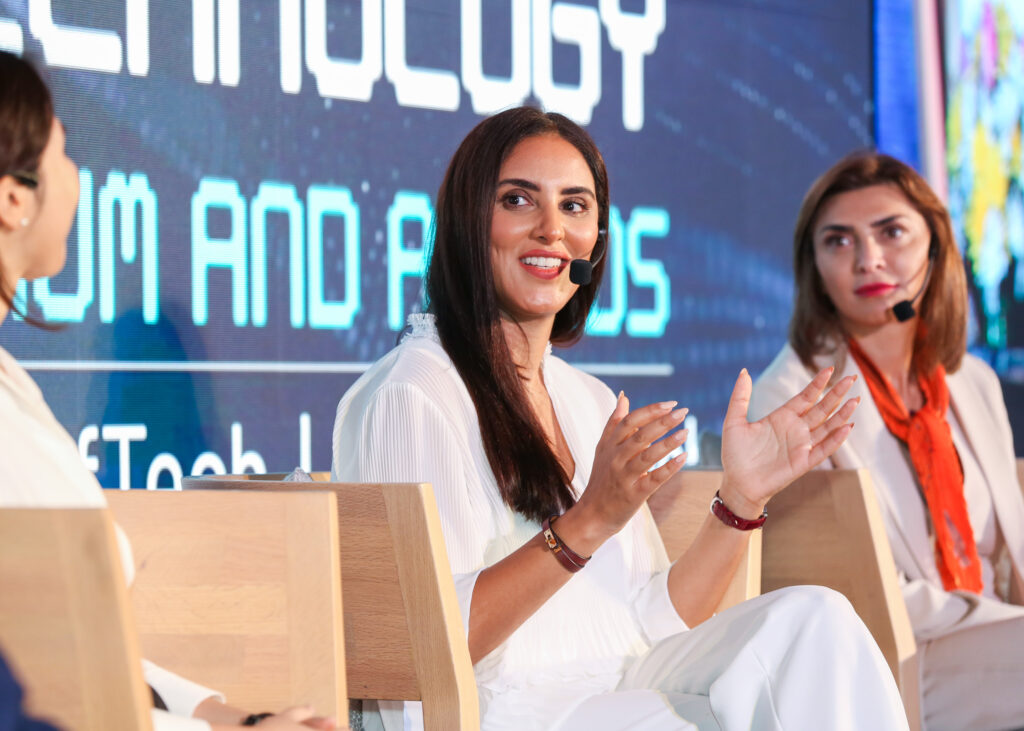
In our closing moments, Loubna shares a heartfelt message for the future, especially for her children: “Be kind. Kindness is key. Being kind is the basis of everything: in your work, with people, animals, and nature.”
Loubna Imenchal’s insights offer a profound message for the future, reminding us that our journey ahead is not just about technological advancements but also about retaining our humanity, kindness, and ability to dream and fight for a better tomorrow. Her journey is a powerful testament, inspiring us to believe in ourselves and strive for a world where optimism, compassion, and determination reign supreme.
